- Home
- Paul Christopher
Templar Conspiracy Page 9
Templar Conspiracy Read online
Page 9
“Where to now?” the priest asked.
“France,” answered Holliday. “Thonon-les-Bains.”
Kate Sinclair sat in the baronial hall that passed as a living room in the castle’s private apartments, drinking coffee and staring out through the three churchlike arched windows at the panorama of the Alps, rising only a few miles distant to the north. Pacing up and down across the giant Tabriz carpet that covered the cold stone floor, General Angus Scott Matoon sipped from a snifter of Dudognon Heritage Cognac and scowled as though the expensive brandy had gone sour. He looked somehow diminished out of uniform, thought Sinclair.
“Did he see you?” the brittle woman asked.
“I saw him, so I’m assuming he saw me,” answered Matoon.
“Excellent,” said the elderly woman.
“You’re sure that leaking Crusader is a good idea? Holliday was only a lieutenant colonel but he’s got some very heavy connections in the intelligence business. He could be big trouble.”
“For God’s sake, get some spine! You’re one of the Joint Chiefs! We’re far too wealthy to have big trouble. We simply have problems we have to surmount,” said Sinclair. She let out a smoker’s coughing laugh and lit another cigarette. “Quit worrying about Holliday. It’ll be taken care of.” She paused for a moment. “When they left, which way were they going?”
“North,” answered the general. “I had Jean-Pierre follow him for a while like you asked. He says they turned west, heading for the border on the coast road.”
“France,” murmured Sinclair. She took a deep drag on her cigarette, then let the smoke dribble out through her aristocratic nostrils. “They’re going to Thonon-les-Bains.”
“What’s there?” Matoon asked.
“Bad news for the colonel and his friends, I’m afraid.”
13
Thonon-les-Bains is a town of eighty thousand, about halfway down Lake Geneva on the French side. The old Roman baths have long since lost their cachet and the town now relies on tourism for the better part of its income. It didn’t take them long to find the self-service garage used by William Tritt. There were only two in the city: Auto Express, which was a too upscale and open concept for Tritt by a long shot. The second was more his speed—a run-down, narrow, tin-roofed warehouse at the end of a narrow street, its twenty or so cubicles roughly divided by rotting canvas curtains hung on thin steel frames. There was a pneumatic lift, a workbench, an assortment of tools and a canvas flap over the rear of the cubicle that afforded some privacy. The place was called Paulie’s Garage and it was Paulie himself who oversaw the place, seated on a creaking, old wooden office chair behind an invoice-piled desk. Paulie was immensely fat. He sweated profusely even with a fan blowing directly over him. He wore bib overalls with the bib section dropped around his waist. Underneath he wore only a sagging, stained wife-beater undershirt. His English was fluent.
Holliday took out the photocopy of the picture Potts had given him. “You ever seen him?”
“Maybe yes; maybe no.”
Holliday put a hundred-euro note on Paulie’s desk.
“Seen him?”
“Maybe yes; maybe no.”
Holliday added another hundred euros.
“Seen him?”
“Yes.”
“Where?”
“He has a booth here.”
“Which one?”
“Nineteen, down at the end, à main gauche. The left side.”
“Mind if we look around?”
“I feel bad letting you go through another man’s things.”
Holliday laid another hundred on the pile. “Feel better?”
“Much better, monsieur.” The big man scooped up the money and stuffed it into his overalls. “My conscience is clearing as we speak.”
“What kind of car does he drive?”
“Audi A8. Black. Brand-new.”
“Nice car,” said Holliday appreciatively.
“At a hundred and fifty thousand euros, it better be nice,” said Paulie, laughing like a large barnyard animal clearing its throat.
“What kind of thing was he doing to a brand-new car? You’d have thought it would still be under warranty.”
“One would think so, oui, m’seiur.”
“So why did he need to rent a cubicle from you?”
Paulie just shrugged his big, fleshy shoulders.
“You don’t know or you’re just not talking?”
“I am having, how you say, moral doubts.”
“Losing the doubts?” Holiday asked, laying another hundred-euro bill on the desk.
“They are completely gone, as quick as magic,” said Paulie, sweeping up the bill and slipping it into his pocket with the others.
“So, what was he fixing?”
“It had something to do with the exhaust system.”
“How could you tell that?”
“Because he came in here two days ago with a complete left-hand side, after-market set of mufflers and pipes. That would leave me to assume that he was working on the exhaust system, n’est-ce pas?”
“When did he leave?”
“Very late that same night.”
“You’re sure of that?”
“One in the morning. I have rooms in the back.”
“And did the car sound quieter?”
“If anything it sounded louder.” Paulie shrugged.
“Show us his cubicle.”
“That wasn’t the bargain you made.”
“Which would you rather have?” Holliday bluffed. “Your guts turned into tails for your best tuxedo or a nice hot cup of battery acid?”
“I don’t have a tuxedo,” whined Paulie.
“Try to imagine it,” said Holliday. “Just like the John Lennon song.”
“And if you can’t imagine that, imagine us stuffing your private parts down your mother’s throat,” offered Brennan mildly. “A revelatory vision, I am sure, my son.” He took the little Beretta Storm out of his black clerical jacket and aimed it at the big man’s sweaty forehead. “As is this,” Brennan added with a smile.
“Viens m’enculer,” said the garage owner, eyes widening, horrified by the sight of a parish priest with a gun in his hand.
“The man, which booth did he work in again?” asked Holliday. “Show us.”
Paulie stumped down the center aisle of cubicles to the last one in the row. The fat man pushed open the grimy canvas curtain. Inside, the cubicle was as neat as a pin. It looked as though every surface had been washed down with some ammonia solution, which it probably had. Set out on a workbench were a series of what appeared to be brand-new baffles for a muffler. Holliday spotted a small slip of paper caught behind the bench and grabbed it. It was a receipt for something incomprehensible from a place called Activite Audi on the Chemin Margentel.
“Where is this place?” Peggy asked.
“Three blocks from here.”
“Who owns it?” Holliday asked.
“An encul from Marseille. He runs—comment . . . how do you say it?—a chop shop. Sometimes he will steal a car to order for you. His name is Marcel.”
“Call him. Tell him you have three customers who want to see him.”
“He’ll tear my face off if he finds out I set him up.”
Brennan brought an old-fashioned switchblade out of his jacket pocket, flicked it open and held it to Paulie’s neck.
“And I’ll slit your throat if you don’t call him.”
Paulie called. He spoke for a moment, then hung up the phone.
“He’s expecting you.”
Brennan used the switchblade to slice through the line of the rotary telephone on Paulie’s desk.
“Warn him and I’ll come back and slit more than your throat,” said the priest.
Paulie nodded mutely.
It took them less than five minutes to walk the three short blocks. The district was full of places like Paulie’s and a scattering of small, anonymous warehouses, small windows painted over on big sliding doors
, and hasps hung with sturdy locks.
There was a plain sign made of stick-on, fake bronze letters on the narrow door that read ACTIVITE AUDI. Beside the narrow door was a big, windowless roll-up. From behind it they could hear the faint echoing sounds of cutting torches, hammers and drills.
Holliday hammered his fist on the small door. It looked as though it had about fifty coats of paint on it, each color some pastel variation of yellow, blue, red or green. There was no response, and he knocked a second time, even harder. Eventually the door opened a few inches revealing a tall, skinny man in a blue boiler suit and a leather workman’s apron. He appeared to be in his fifties. He had a heavy wrench in his right hand.
“Qu’est-ce que tu veux?” asked the man. Holliday noticed a long, thin scar that ran from the man’s eye socket down to his chin, pale against the stubble on his cheek. Once upon a time someone had opened up his face with a very sharp knife or a razor.
“We’re here to see Marcel. Paulie sent us.”
“Paulie is a pig. Why do you want to see Marcel?”
“To ask him about a car he worked on.”
“Who are your friends?” He nodded toward Brennan and Peggy.
“Colleagues.”
“You a real penguin?” the man asked Brennan, nodding toward his collar.
“Yes,” said the priest.
“What car are we talking about?”
“A black Audi A8. Owned by an American.”
“Sure, I know it.”
“You’re Marcel?”
“Yes.” He stepped out onto the narrow, crumbling sidewalk, closing the old door behind him.
“What did you do for him?” Holliday asked.
“What’s it worth for you to know?”
“Five hundred euros,” Holliday said.
“A thousand.”
“Six hundred,” said Holliday.
“Seven fifty,” said Marcel.
“Done,” said Holliday.
“Cash,” Marcel demanded.
Holliday took out his wallet and counted out the money. “Talk.”
“He wanted to know if it was possible for me to bypass one set of headers on the exhaust system and run them through a single pipe.”
“Plain language, please,” asked Holliday.
“The A8 has twin pipes. He wanted one of them to be a dummy.”
“Why would someone want that?”
“He also told me he wanted the baffles removed. He wanted a stash.”
“How big?”
Marcel held his hands about a yard apart. “A meter, maybe a little more.”
“How wide?”
“Twenty-five, maybe thirty centimeters.”
“Ten inches.”
“Enough for half a dozen kilos of heroin.” Marcel smiled.
“He told you he was smuggling heroin?”
“He was pretty clear about it,” Marcel said. “He knew the right names, anyway.”
“When did you do the job?”
“Four days ago. He picked up the car yesterday. Paid extra for the rush.”
Holliday couldn’t think of anything else. He thanked Marcel for the information.
“Anytime. Bring money.” The man in the leather apron grinned and slipped back into his shop.
They walked back to the rental car, then found a place to stop for lunch in Thonon-les-Bains.
“Why would he be smuggling heroin?” Peggy asked.
“He wouldn’t,” said Holliday.
“Then the false muffler was for something else?” Brennan asked.
“Presumably.” Holliday nodded.
“Then it’s a riddle,” said Peggy, using her chopsticks to sort through the small delicacies in the bento box she’d ordered. “What’s a yard long and ten inches in diameter?”
“Some sort of weapon, perhaps?” Brennan said.
Something tickled the edge of Holliday’s memory. Something about America’s first foray into the impossible country called Afghanistan.
“It’s your town,” said Holliday to Brennan. “What airport would Air Force One use?”
“Pratica di Mare Air Force Base, southwest of the city. It’s a little bit out of the way but it can be absolutely secured. The Holy Father uses it.”
“So that’s how all the foreign heads of state would arrive?”
“Almost certainly.”
“What route would they use to get into the city?”
“The Pope uses the Via Cristoforo Colombo. A highspeed auto route where you can control access and there are no tall buildings until you get into the city proper. Even for our assassin it would be an impossible target. Kennedy’s limousine was traveling at something like eleven or twelve miles per hour when Oswald shot him. The Holy Father’s limousine generally travels at a hundred and twenty kilometers an hour—roughly seventy miles per hour. No assassin in the world could make a shot like that.”
“He could if he had the right weapon,” murmured Holliday. He poked thoughtfully at the tiny salad on his plate.
“What’s that supposed to mean?” Peggy asked.
“He knows security around the Vatican is going to be fierce. He knows that there will be countersnipers, dogs, dozens—if not hundreds—of highly trained Secret Service types from every major nation in the world. Trying to kill the president in an environment like that would be suicide. Somehow I don’t see our man as a martyr to the Rex Deus cause. He’s going to do the job efficiently and he’s going to get away with it unless we stop him.”
“You said something about the right weapon,” prompted Brennan.
“I once saw a man named Emil, dressed in rags and rubber-tire sandals, destroy a Russian Mil Mi-24 attack helicopter from two miles away.” He turned to Peggy. “It’s the answer to your riddle, Peg. What’s a yard long and ten inches in diameter? A portable Stinger missile. Just about the only one-man device capable of opening up the presidential limousine like a tin of sardines.”
14
Driving out of Thonon-les-Bains, they headed west, back toward Geneva. There were trees and small villages scattered along the busy strip of two-lane highway as it meandered along a few miles inland from the lake.
“If you’re right about the Stinger, we have to go to the cops; there’s no choice anymore,” said Peggy.
“What cops?” Holliday asked grimly. “The FBI, the Italians, Homeland Security?”
“How about the ones hanging off our back bumper?” Brennan said, looking out through the rear window. A dark blue police cruiser with its light bar flashing had cut in behind them, its two-tone siren suddenly blaring.
“Now what?” Holliday muttered. He pulled the rental off into the first lay-by, which happened to be in front of a Chinese takeout place called l’Asian. He stopped the car and watched as two Gendarmerie Nationale cops climbed out of their cruiser and approached the rental, one on each side of the car.
“Speeding?” Peggy asked.
“On this road, no way,” said Holliday shaking his head. A dark yellow Mercedes Sprinter panel truck with Chinese lettering on the side pulled out from the alley beside the takeout restaurant and stopped.
One of the cops motioned for Holliday to roll down his window. The second cop squatted down and looked through the car on Peggy’s side. Holliday rolled down his window.
Why, thought Holliday, do cops all over the world think mirrored sunglasses are so cool?
“Votre papiers, s’il vous plait,” the cop said pleasantly.
“Sure,” said Holliday. He leaned over and pushed the button on the glove compartment.
“Hey!” Peggy yelled. There was the sound of breaking glass and then a crackle of electricity.
I’ve been here before, thought Holliday, as unconsciousness washed over him. Then everything went dark.
Peggy Blackstock had a pretty good idea of where they were, at least in general terms, even though their captors had pushed blinding cloth bags over their heads once they were in the truck. Neither she nor Brennan had been Tasered by
the phony cops, although the threat was there if they decided not to cooperate. The truck with the Chinese lettering on the side had driven for about an hour when she heard the sound of airplanes low overhead, which almost certainly meant the Geneva airport. After that they definitely were going uphill, the road twisting and turning enough to throw them around in the truck’s interior. They were in the mountains outside Geneva, the Haute Savoie—the French Alps. The way the truck slowed, then speeded up, Peggy could tell that they were going through one alpine village after another. Baptieu, Les Contamines-Montjoie, maybe La Chapelle. Wherever they were, it was up one of the long, narrow, glacial valleys: ski country.
Another hour, and then the rich scent of pine. The road was narrower with no traffic at all. They had to be climbing steeply because the truck engine was straining in its lowest gear. They were being taken to some out of the way spot in the mountains. But who was doing the taking? Fake cops, or bribed ones, plus access to private places in the Alps implied that whoever it was had a great deal of money. She’d dealt with everyone from Al-Qaeda to the Taliban to the Lord’s Resistance Army in Uganda, and most of their headquarters were in caves, mountain camps or jungle clearings; she’d never done a photo story about Swiss terrorists. Maybe Doc was right, and Jihad al-Salibiyya was an invention of Rex Deus, or—God save America—the Central Intelligence Agency.
Across from her she could hear Brennan muttering under his breath. It was too Byzantine to think that the church was involved, but she’d made that mistake before. Brennan could be up to his neck in the whole thing. The little Irishman was certainly capable of cooking up any number of plots within the church hierarchy. He’d been party to at least a dozen murders that she knew about—he was hardly a trusted ally. The only people she could trust were Doc and Rafi.
She felt a dull ache in the pit of her stomach at the thought of her archaeologist husband. He’d been so good to her after she’d lost the baby and he was even willing to give up his Africa expedition to stay with her. The ache grew worse, but it wasn’t in her stomach; it was in her heart. He’d wanted a child so badly and she hadn’t been able to give him one.
“We’ve got all the time in the world,” he’d soothed, but she knew it wasn’t true. Another few years and she’d be in dangerous waters when it came to pregnancy, and she was goddamned if she was going to go through the infertility hell she’d seen some of her friends dealing with. Maybe they could adopt, cliché or not. She laughed briefly at the thought; Rafi had enough love for a dozen children. Maybe they could become the Israeli version of Brangelina.

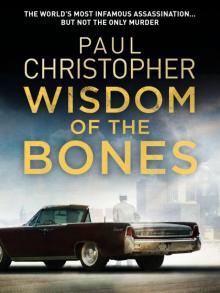 Wisdom of the Bones
Wisdom of the Bones The House of Special Purpose
The House of Special Purpose The Second Assassin
The Second Assassin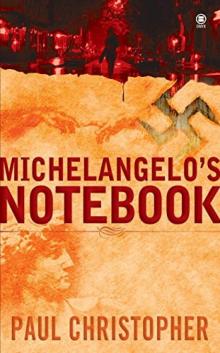 Michelangelo's Notebook
Michelangelo's Notebook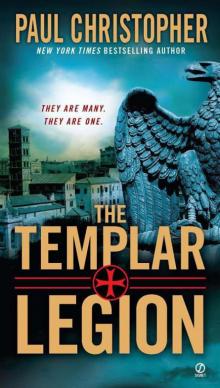 Templar Legion
Templar Legion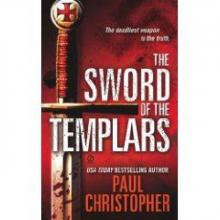 The Sword of the Templars t-1
The Sword of the Templars t-1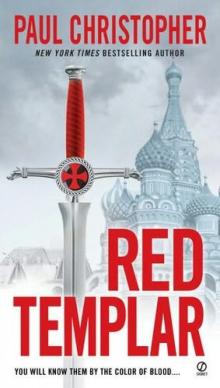 Red Templar
Red Templar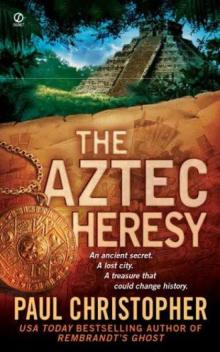 The Aztec Heresy
The Aztec Heresy The Templar Legion
The Templar Legion Rembrandt's Ghost
Rembrandt's Ghost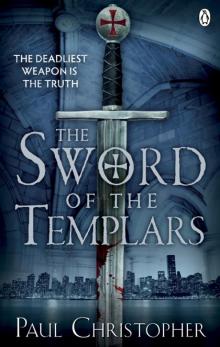 Sword of the Templars
Sword of the Templars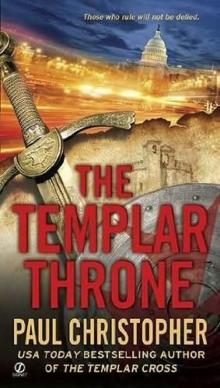 The Templar throne t-3
The Templar throne t-3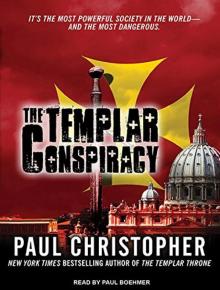 The Templar Conspiracy
The Templar Conspiracy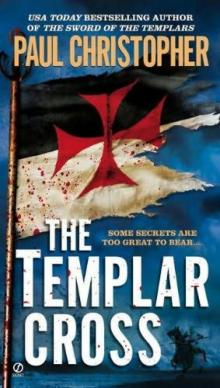 The Templar Cross t-2
The Templar Cross t-2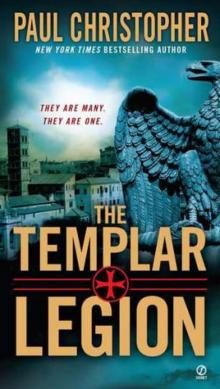 The Templar Legion t-5
The Templar Legion t-5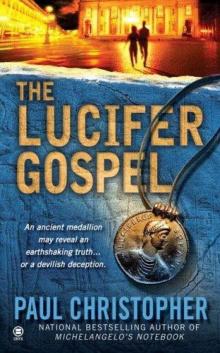 The Lucifer Gospel
The Lucifer Gospel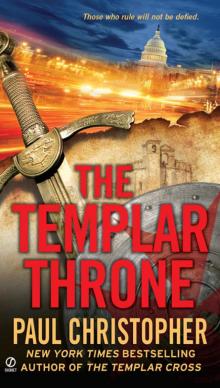 Templar Throne
Templar Throne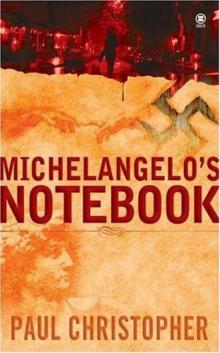 Michelangelo_s Notebook fr-1
Michelangelo_s Notebook fr-1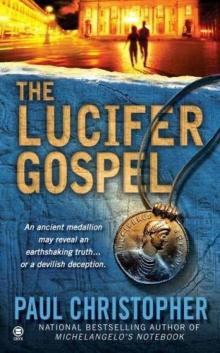 The Lucifer Gospel fr-2
The Lucifer Gospel fr-2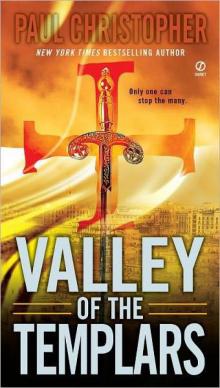 Valley of the Templars ts-7
Valley of the Templars ts-7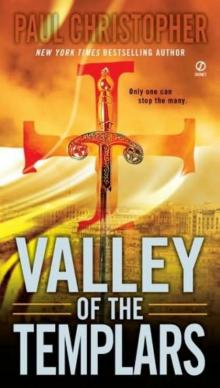 Valley of the Templars
Valley of the Templars Templar Cross
Templar Cross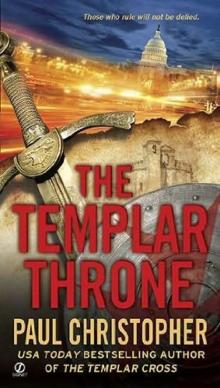 The Templar Throne
The Templar Throne The Templar Cross
The Templar Cross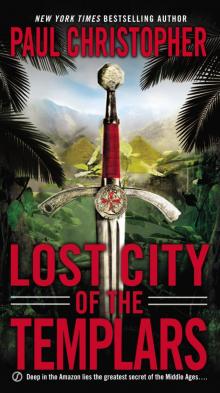 Lost City of the Templars
Lost City of the Templars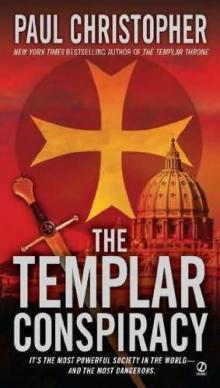 The Templar conspiracy t-4
The Templar conspiracy t-4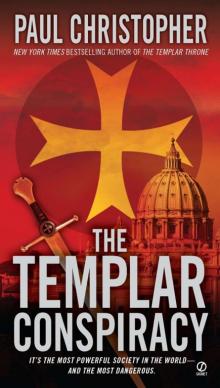 Templar Conspiracy
Templar Conspiracy